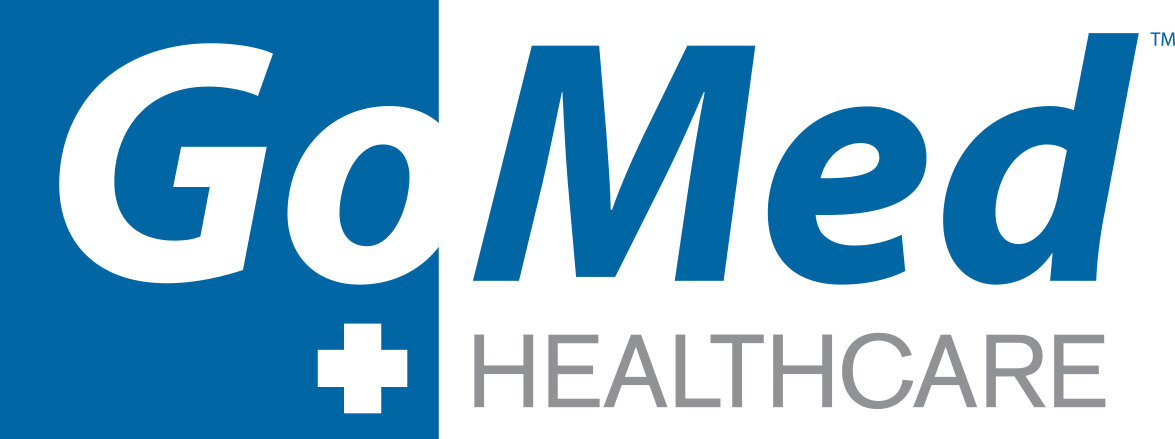Registered Nurse (RN) supervisors play a crucial role in healthcare settings, overseeing nursing staff, ensuring quality patient care, and maintaining efficient operations. In this comprehensive article, we delve into the responsibilities, qualifications, and career prospects of nurse supervisors. Whether you’re an aspiring RN supervisor or simply curious about this role, read on to discover what it takes to excel in this rewarding position.
What Does the Nursing Supervisor Do?
As a nursing supervisor, your primary responsibility is to lead and manage the nursing staff. You bridge the gap between frontline nurses and upper management, ensuring smooth communication and efficient workflow. Your duties encompass a wide range of critical tasks:
- Staff Coordination: You meticulously assign tasks, create schedules, and ensure adequate staffing levels to meet patient needs. Your ability to balance workload and allocate resources is vital.
- Quality Assurance: Monitoring patient care, addressing any issues promptly, and maintaining high standards are at the core of your role. You collaborate with nurses to enhance care delivery.
- Problem-Solving: Handling emergencies, conflicts, and staffing challenges effectively requires quick thinking and adaptability. Your decisions impact patient outcomes and staff morale.
- Policy Implementation: Enforcing hospital policies, protocols, and safety guidelines ensures consistency and compliance across the nursing team.
- Collaboration: Working closely with nurse managers, physicians, and other healthcare professionals fosters a cohesive and patient-centric environment.
Who Is the Direct Supervisor of an RN?
The direct supervisor of an RN is typically the nurse manager. Nurse managers oversee specific units or departments within a healthcare facility. They guide RNs, set performance expectations, and ensure adherence to policies. While nurse supervisors handle broader coordination, nurse managers focus on day-to-day operations, budgeting, and strategic planning.
Expectations from a Nursing Supervisor
As a nursing supervisor, you’re expected to embody leadership qualities and contribute significantly to the nursing team’s success. Here’s what’s expected of you:
- Lead by Example: Demonstrate professionalism, empathy, and strong clinical skills. Your behavior sets the tone for the entire team.
- Advocate for Staff: Support nurses, address their concerns, and foster a positive work environment. Your ability to listen and empathize is crucial.
- Ensure Patient Safety: Prioritize patient well-being and advocate for safe practices. Vigilance in monitoring care quality is essential.
- Promote Teamwork: Encourage collaboration among nursing staff and other departments. Effective teamwork enhances patient outcomes.
- Stay Current: Keep up with industry trends, regulations, and best practices. Continuous learning ensures your competence as a leader.
Nurse Supervisors in Home Care
In home care settings, nurse supervisors play a unique role. They oversee care provided in patients’ homes, coordinating visits, assessing patient needs, and ensuring proper documentation. Home care supervisors must balance clinical expertise with compassion, as they often work closely with patients and their families. Their ability to adapt to diverse environments and provide personalized care is critical.
Nurse Manager vs. Nurse Supervisor
While both roles involve leadership, nurse managers and nurse supervisors have distinct focuses:
- Nurse Managers: These professionals handle daily operations, budgeting, and strategic planning. They lead specific units or departments.
- Nurse Supervisors: Emphasizing coordination, staff support, and quality assurance, nurse supervisors ensure smooth functioning across the nursing team. They often hold higher positions within the organization.
Why Become a Nurse Supervisor?
Choosing the path of a nurse supervisor offers several compelling reasons:
- Impact: Shape patient care, mentor staff, and contribute to healthcare excellence. Your decisions directly affect patient outcomes.
- Career Growth: Gain leadership experience and advance your nursing career. Nurse supervisors often transition to higher administrative roles.
- Rewarding Challenges: Solve complex problems, adapt to changing situations, and make a tangible difference in patient lives.
The Highest-Paid Nurse Positions
If you’re aiming for top-tier compensation, consider these high-paying nursing roles:
- Nurse Anesthetists: Administer anesthesia during surgery, earning competitive salaries with sign on bonus.
- Nurse Practitioners: Provide advanced care, diagnose, and prescribe medications.
- Nurse Administrators: Oversee healthcare facilities, manage budgets, and drive organizational success.
The Pinnacle of Nursing: Chief Nursing Officer (CNO)
The CNO holds the highest position in nursing. They lead nursing departments, shape policies, and drive excellence across the organization. Aspiring nurse supervisors can look up to CNOs as role models.
What Are Nursing Supervisors Called?
Nursing supervisors may be referred to by various titles:
- Nurse Supervisors: The most straightforward term.
- Clinical Coordinators: Reflecting their coordination role.
- Nurse Coordinators: Highlighting their pivotal
Certainly! Let’s delve deeper into the fascinating world of nursing supervisors and explore more aspects of their roles and responsibilities.
Nailing the Supervisor Interview
Preparing for a supervisor interview is essential to showcase your skills and suitability for the role. Here are some key strategies to help you succeed:
Research the Organization
Before the interview, thoroughly research the healthcare organization where you’re applying. Understand its values, mission, and challenges. Familiarize yourself with its patient population, services offered, and any recent developments. Demonstrating this knowledge during the interview shows your genuine interest and commitment.
Be Ready for Behavioral Questions
Expect behavioral questions that assess your leadership abilities, problem-solving skills, and interpersonal competencies. Prepare specific examples from your experience to illustrate your responses. For instance:
- Leadership: Describe a situation where you successfully led a team through a challenging project.
- Conflict Resolution: Share an instance when you resolved a conflict among staff members.
- Teamwork: Discuss how you fostered collaboration within your team.
Dress Professionally
Your appearance matters during an interview. Dress in professional attire that reflects your commitment to the role. Opt for business attire, ensuring it’s clean, well-fitted, and appropriate for the healthcare setting. A polished appearance conveys confidence and respect for the process.
Expectations as a Supervisor
As a nursing supervisor, several expectations come with the territory:
Accountability
Take ownership of your decisions and their outcomes. Whether it’s managing staffing levels, addressing patient concerns, or implementing policies, be accountable. Transparency and responsibility build trust with your team and superiors.
Effective Communication
Clear communication is vital. Listen actively to your team members, address their needs, and convey expectations clearly. Miscommunication can lead to misunderstandings and affect patient care. Be approachable and open to feedback.
Adaptability
Healthcare environments are dynamic. As a supervisor, you’ll encounter diverse situations, personalities, and challenges. Adaptability allows you to navigate changes smoothly. Stay flexible and find creative solutions when faced with unexpected circumstances.
Charge Nurse vs. Supervisor
Let’s briefly differentiate between a charge nurse and a supervisor:
- Charge Nurse: A charge nurse oversees a specific shift or unit. They manage daily operations, patient assignments, and staff coordination during their shift.
- Supervisor: A supervisor has broader responsibilities. They coordinate across shifts, address staffing issues, and ensure overall quality of care. Supervisors often collaborate with charge nurses to maintain continuity.
Duties of a Healthcare Supervisor
Healthcare supervisors play a pivotal role in maintaining efficient operations. Their duties include:
- Staff Management: Supervisors oversee recruitment, training, and performance evaluations. They ensure adequate staffing levels and address any disciplinary matters.
- Quality Assurance: Monitoring patient care, adherence to protocols, and compliance with regulations.
- Budget Oversight: Managing resources effectively, including staffing costs, supplies, and equipment.
- Conflict Resolution: Handling disputes among staff members and promoting a positive work environment.
- Patient Safety: Prioritizing patient well-being and minimizing risks.
Who Is the Boss of a Nurse Manager?
Nurse managers report to higher-level administrators, such as the Chief Nursing Officer (CNO) or hospital executives. The CNO, as mentioned earlier, holds the pinnacle position in nursing leadership.
In summary, nursing supervisors are pivotal figures who balance leadership, patient care, and operational excellence. Their ability to adapt, communicate effectively, and foster a positive work environment contributes significantly to healthcare organizations.
GoMed Healthcare is a full-service specialty nurse staffing company that offers per diem, contract, and placement services. Our focus is on recruitment and placement of specialty healthcare professionals, including Registered Nurses (RNs), Licensed Vocational/Practical Nurses, and Certified Aides. We pride ourselves on providing top-tier roles in various healthcare settings, from bustling cities to serene towns across the United States.
At GoMed Healthcare, we revolutionize caregiver careers by offering cutting-edge benefits, such as daily pay, flexible schedules, and a nationwide network of facilities. Our commitment is to alleviate stress for caregivers, allowing them to concentrate on what they do best. Whether you’re seeking stability in full-time positions or the adventure of per diem roles, GoMed Healthcare has tailored options to suit your career aspirations.for nurse supervisor jobs and others,easily apply and Join our community and embark on a transformative and innovative caregiving experience with us1.

